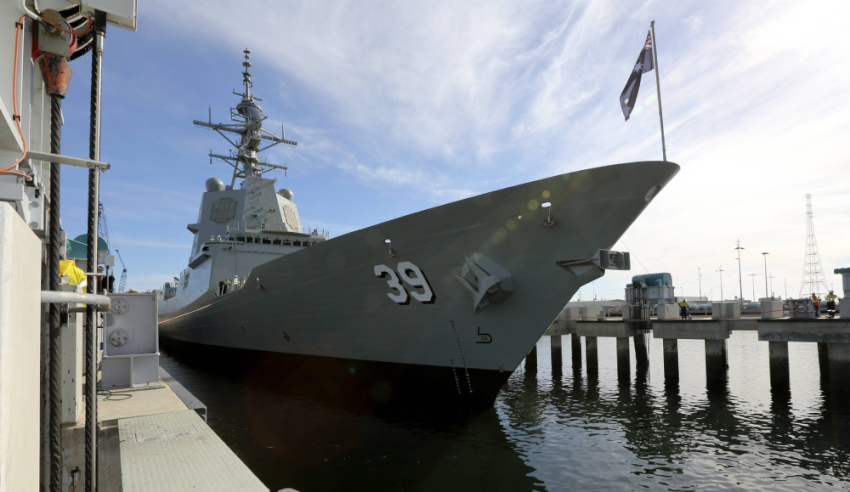The Naval Shipbuilding Plan has acknowledged South Australia will need foreign and interstate workers to help meet the deadlines for the country's largest ever defence project.
To continue reading the rest of this article, please log in.
Create free account to get unlimited news articles and more!
After recently initiating a crackdown on foreign workers with the axing of the 457 visa program and replacing it with a tighter program, Prime Minister Malcolm Turnbull, Minister for Defence Marise Payne and Minister for Defence Industry Christopher Pyne have conceded foreigners will be "essential" to "fill middle management and supervisory roles" in SA during the expansion of Australia's Navy fleet.
However, the government is claiming the number of skilled foreign workers in the naval shipbuilding will decline over time, with Australian workers gaining the skills and experience to replace them.
"Selected shipbuilders are expected to bring into the Australian shipyards workers from their home companies who are familiar with their specific production techniques and processes," the plan reads.
"These workers are likely to fill middle management and supervisory roles and will be essential to the process of knowledge transfer to the Australian naval shipbuilding industry. It is expected that over time the number of skilled workers from international shipyards will decline as the Australian workforce becomes familiar with construction requirements and develops more specialised skills. This will be an important area of discussion with selected shipbuilders as projects develop."
The 114-page document says over 15,000 personnel will be directly or indirectly employed in the naval shipbuilding enterprise.
"By 2026, the industry will require over 5,200 staff employed in construction activities, and more than double that number employed in sustainment activities and in supply chain and related institutions and industries that directly and indirectly support the enterprise, on both the customer (Government) and supplier (industry) sides of the activity," the document reads.
The plan also acknowledges that Australian shipbuilding has been decimated by the 'valley of death' in the last few years.
According to the plan, "As the air warfare destroyer project continues to wind down toward completion, the naval shipbuilding workforce has been declining. The so-called ‘valley of death’ has seen the naval shipbuilding industry shed thousands of employees over the last five years. Critical skills have been lost from the industry as experienced workers, foremen, leaders and managers have left. These workers, plus thousands more, will be needed to deliver on the three continuous build programs that commence over the coming few years.
"Significant challenges exist in ensuring a highly skilled workforce is available within the timelines required. Shipbuilders and others in the naval shipbuilding and sustainment industry have reported difficulty in sourcing workers with the required skills and experience. Many of the world’s leading shipbuilding companies have established in-house training schools, or developed partnerships with local or national training providers to provide training in naval shipbuilding."
The government says that although it could leave it to the selected designers and builders to source their own workforces and establish their own training requirements, it will play an active role in managing workforce issues in the initial implementation stages of the Naval Shipbuilding Plan.
"Leaving workforce development solely to industry could result in multiple different approaches to workforce skilling with little or no co-ordination at the national level, and little consideration to meeting the skilled workforce needs of the broader naval shipbuilding enterprise (including the supplier and sustainment base and the Commonwealth)," the plan reads.
"The government considers the national naval shipbuilding enterprise too important to Australia to allow this to occur. Therefore, the government will play an active role in managing workforce issues, at least in the initial stages of implementing the Naval Shipbuilding Plan, through a collaborative approach with key national and international stakeholders to finalise a strategic workforce plan."
But the government stressed that the selected shipbuilding companies will clearly retain responsibility for the commercial recruitment and workforce development decisions, which it says "they are best placed to make".
"The strategic workforce plan will assist Defence and industry to work closely on meeting projected demands in a collaborative way. It will identify workforce growth targets and develop strategies to achieve required growth and skills development at the national level," the plan reads.

 Login
Login







